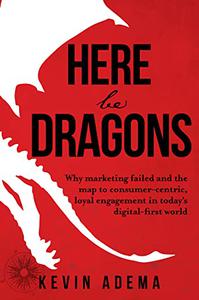

E-Books → Memoirs of a Failed Diplomat
Published by: voska89 on 22-02-2023, 23:17 |  0
0

Dan Vittorio Segre, "Memoirs of a Failed Diplomat"
English | ISBN: 1870015894 | 2005 | 320 pages | EPUB | 254 KB
The present volume continues the tale Dan Serge Vittorio began in Memoirs of a Fortunate Jew, tracing the development of his unique personality, which attracts him to ever-more eccentric and paradoxical situations. From soldier to diplomat to soldier again-via Palestine, Paris, Ethiopia, and Madagascar-Segre chronicles his encounters with other remarkable characters: a chain-smoking Golda Meir; the African leaders Tom Mboya and Julius Nyerere; Soviet diplomats and KGB agents. Suspected of being a spy, Segre is dismissed from the Foreign Ministry, official recognition of his innocence only coming a decade later. By this time, however, Segre had fully embarked on new careers as a journalist and academic. Segre's candor, irony, intelligence, and belief are irresistible companions throughout this adventure.
E-Books → Unwanted The Care System Failed Lara Will She Fail Her Own Child by Cathy Glass
Published by: Emperor2011 on 8-02-2023, 16:44 |  0
0

Unwanted The Care System Failed Lara Will She Fail Her Own Child by Cathy Glass | 35.94 MB
English | 312 Pages
Title: Unwanted
Author: Cathy Glass
Year: 2023
E-Books → Unwanted The Care System Failed Lara. Will She Fail Her Own Child [Audiobook]
Published by: voska89 on 1-02-2023, 05:01 |  0
0
![Unwanted The Care System Failed Lara. Will She Fail Her Own Child [Audiobook] Unwanted The Care System Failed Lara. Will She Fail Her Own Child [Audiobook]](https://i121.fastpic.org/big/2023/0131/8c/3ea52a2809cb89e1e4bc438a9656b48c.jpeg)
Unwanted: The Care System Failed Lara. Will She Fail Her Own Child? (Audiobook)
English | ASIN: B0BM4WXHCT | 2023 | 7 hours and 47 minutes | M4B@64 kbps | 221 MB
Author: Cathy Glass
Narrator: DeNica Fairman
E-Books → Albert Einstein The Genius Who Failed School - Biography Book Best Sellers Children's Biography Books
Published by: voska89 on 5-01-2023, 08:27 |  0
0

Baby Professor, "Albert Einstein: The Genius Who Failed School - Biography Book Best Sellers Children's Biography Books"
English | ISBN: 1541912381 | 2017 | 64 pages | EPUB | 4 MB
Albert Einstein lived a very interesting life. When he was young, his teacher said that he would never be anything great because he was stupid. We all know how wrong his teacher was because Einstein grew to formulate the most complex of all theories. Einstein's story would tell us to never give up. Read and learn from his biography today!
E-Books → God Has Never Failed Me But He's Sure Scared Me to Death a Few Times
Published by: voska89 on 13-10-2022, 21:12 |  0
0

Stan Toler, "God Has Never Failed Me: But He's Sure Scared Me to Death a Few Times"
English | ISBN: 0736979875 | 2020 | 224 pages | EPUB | 2 MB
E-Books → Conquered Why the Army of Tennessee Failed [Audiobook]
Published by: voska89 on 16-08-2022, 19:52 |  0
0
![Conquered Why the Army of Tennessee Failed [Audiobook] Conquered Why the Army of Tennessee Failed [Audiobook]](https://i120.fastpic.org/big/2022/0816/a5/fae54a9ee6bb4c0c8931bb33b76931a5.jpeg)
English | ASIN: B07TCR4Z7N | 2019 | 15 hours and 48 minutes | MP3 | M4B | 862 MB
Operating in the vast and varied trans-Appalachian west, the Army of Tennessee was crucially important to the military fate of the Confederacy. But under the principal leadership of generals such as Braxton Bragg, Joseph E. Johnston, and John Bell Hood, it won few major battles, and many regard its inability to halt steady Union advances into the Confederate heartland as a matter of failed leadership. Here, esteemed military historian Larry J. Daniel offers a far richer interpretation. Surpassing previous work that has focused on questions of command structure and the force's fate on the fields of battle, Daniel provides the clearest view to date of the army's inner workings, from top-level command and unit cohesion to the varied experiences of common soldiers and their connections to the home front. Drawing from his mastery of the relevant sources, Daniel's book is a thought-provoking reassessment of an army's fate, with important implications for Civil War history and military history writ large.
[center]
E-Books → Here Be Dragons Why Marketing Failed and the Map to Consumer-Centric, Loyal Engagement in Today's Digital-First World
Published by: voska89 on 16-08-2022, 15:42 |  0
0

Here Be Dragons: Why Marketing Failed and the Map to Consumer-Centric, Loyal Engagement in Today's Digital-First World by Kevin Adema
English | August 8, 2022 | ISBN: N/A | ASIN: B0B91WNCF9 | 163 pages | EPUB | 2.01 Mb
On ancient maps, unknown spaces - those yet to be charted - were indicated by the symbol of a dragon. It was a clear warning:
E-Books → Democracy The God That Failed (Audiobook)
Published by: voska89 on 2-08-2022, 22:57 |  0
0

English | 2021 | MP3 | M4B | ASIN: B09445R2QX | Duration: 12:23 h | 698 MB
Hans-Hermann Hoppe / Narrated by Paul Strikwerda
This sweeping book is a systematic treatment of the historic transformation of the West from limited monarchy to unlimited democracy. Revisionist in nature, it reaches the conclusion that monarchy, with all its failings, is a lesser evil than mass democracy but outlines deficiencies in both as systems of guarding liberty.
E-Books → The Maginot Line The History of the Fortifications that Failed to Protect France from Nazi Germany During World War II
Published by: voska89 on 2-08-2022, 19:41 |  0
0

The Maginot Line: The History of the Fortifications that Failed to Protect France from Nazi Germany During World War II by Charles River Editors
English | June 17, 2015 | ISBN: 1514381656 | 75 pages | EPUB | 1.98 Mb
*Includes pictures *Explains the origins of the Maginot Line, its construction, and the World War II fighting around it *Includes online resources and a bibliography for further reading *Includes a table of contents "We could hardly dream of building a kind of Great Wall of France, which would in any case be far too costly. Instead we have foreseen powerful but flexible means of organizing defense, based on the dual principle of taking full advantage of the terrain and establishing a continuous line of fire everywhere." - Andre Maginot As the power of Nazi Germany grew alarmingly during the 1930s, the French sought means to defend their territory against the rising menace of the Thousand-Year Reich. As architects of the most punitive measures in the Treaty of Versailles following World War I, the French government made natural targets for Teutonic retribution, so the Maginot Line, a series of interconnected strongpoints and fortifications running along much of France's eastern border, helped allay French fears of invasion. The popular legend of the Maginot Line portrays the frontier defenses as a useless "white elephant" project that was prompted by a gross misapprehension of warfare's new realities in the mid-20th century and quickly overwhelmed by the forceful advance of the German blitzkrieg. English idiom today invokes this vision of the Maginot Line as a metaphor for any defensive measure strongly believed in but actually useless. Indeed, usages such as "Maginot Line mentality," describing an overly defensive, reactive mindset, perpetuate the legend. As a French author and military liaison with the British, Andre Maurois, wrote about his disillusionment with the defensive line he originally enthusiastically supported: "We know now that the Maginot line-complex was a dangerous disease of the mind; but I publish this as it was written in January, 1940." In reality, however, the actual Maginot Line proved considerably more functional than memory has served. The true flaw in French military strategy during the opening days of World War II lay not in reliance on the Maginot fortifications but in the army's neglect to exploit the military opportunities the Line created. In other words, the border defense performed as envisioned, but the other military arms supported it insufficiently to halt the Germans. The French Army squandered the opportunity not because the Maginot Line existed but because they failed to utilize their own defensive plan properly. Some French commentary contributed to the legend, but the bloviating of politicians altered nothing regarding the Maginot Line's actual purpose or history: "General Maurin, defended the status quo in these words: '[H]ow could one think that we are still thinking about an offensive when we have spent billions to establish a fortified barrier? Would we be mad enough to advance beyond this barrier to undertake some adventure?' [...] but the Maginot Line had never been conceived as a sort of Great Wall of China sealing France off from the outside world. Its purpose was to free manpower for offensive operations elsewhere." (Jackson, 2004, 27). In fact, a forgotten battle in the southeast of France, where four French divisions (later reduced to three by the redeployment of one northwards in a futile effort to stem the German tide) held off 32 Italian divisions thanks to the defensive power of the so-called "Little Maginot Line of the Alps," proved the soundness of both the concept and engineering. Though the Italians suffered from poor equipment and the meddling incompetence of Mussolini's personal "leadership," the fighting on the Alpine front brilliantly highlighted the Maginot Line's success as a "force multiplier." French soldiers held off brave but futile Italian attacks at odds of 8:1 or 10:1 in favor of the Italians for five days until an armistice with the Axis put an end to this undeniable display of the Maginot Line's effectiveness.
E-Books → The Birth of States Successful and Failed Secessions
Published by: voska89 on 2-08-2022, 19:22 |  0
0

Jacob Dut Chol Riak, "The Birth of States: Successful and Failed Secessions"
English | ISBN: 0645110914 | 2021 | 114 pages | EPUB | 664 KB
This book examines different domestic and international factors that lead to support for secessions. It questions why South Sudan's secession was successfully supported by Western great powers while Somaliland and Western Sahara were not supported. It argues that support for secessions and international recognition have more to do with the great powers' own interests, particularly, the U.S., rather than the fulfillment of the criteria of international law.The analysis examines six competing arguments (hypotheses) such as: history of conflict; agreed framework and commitment of local population; compatible norms and internationalized ethnic politics; status of the mother state in the eyes of the international community; economic benefits, and security and stability interests in the case of South Sudan. A comparison of these hypotheses with the cases of Somaliland and Western Sahara shows unique case of support for South Sudan statehood.



